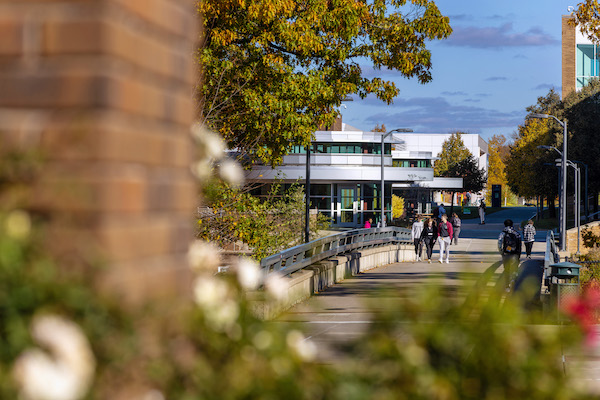Commitment to Freedom of Expression
Onondaga Community College believes in free speech and free expression.
We believe in the exchange of ideas because we believe in an ethical pursuit of truth. Our goal is to ensure these principles are exhibited by every member of the college community. That’s not possible if some groups are intentionally or unintentionally excluded from full participation.
Onondaga Community College guarantees all members of the college community to speak, write, listen, challenge, and learn, except when that expression violates the law, falsely defames a specific individual, constitutes a genuine threat or harassment, unjustifiably invades privacy or is directly incompatible with the functioning of the College.
OCC’s commitment is to the principle that debate, discussion and deliberation may not be suppressed because the ideas put forth are thought by some or even most members of the college community to be offensive or unwise. We have a responsibility to promote the lively and fearless freedom of debate and deliberation and will also protect that freedom when others attempt to restrict it. It is not the role of the College to attempt to shield individuals from ideas and opinions they find uncomfortable, disagreeable, or offensive. The role of the college is to sustain an environment in which all students can freely learn.
Onondaga Community College values diversity, recognizing the dignity of every person. We expect to be better today than yesterday. The best way to ensure progression is to recognize that true inclusion and true free speech are interdependent. They must continue to be so.
Engage, Listen, Learn: Our Commitment to Civil Discourse
When we say, “civil discourse,” what are we talking about? Civil discourse is discussing matters of public concern respectfully, open-mindedly, and informatively. It involves:
- Mutual respect: Treating others with dignity and consideration, even when disagreeing.
- Openness: Listening to different perspectives and considering alternative viewpoints.
- Attentive listening: Focusing on understanding others' positions rather than simply refuting them.
- Constructive communication: Expressing ideas clearly and respectfully, avoiding personal attacks.
- Focus on common ground: Build consensus and identify shared values and goals.
Why is it important?
- Promotes understanding: It helps people with different viewpoints appreciate each other's perspectives, leading to greater empathy and cooperation.
- Fosters problem-solving: By engaging in respectful dialogue, communities can find common ground and develop solutions to shared challenges.
- Strengthens democracy: Civil discourse is the foundation of a democratic society, where citizens can openly debate and discuss important issues.
- Reduces polarization: Civil discourse can help bridge divides and reduce political polarization.
- Improves decision-making: By considering multiple perspectives, better-informed decisions can be made.
Common Questions
Campus Resources
Counseling & Community Care Hub
- Gordon Student Center G230
- counselingcenter@sunyocc.edu
- 315-498-2675
- This is a confidential reporting source and they will not disclose information without your consent unless danger to self or others exists.
Campus Safety & Security
- Service & Maintenance Building
- 315-498-2478 (Non-Emergency)
- 315-498-2311 (Emergency)
Dean of Students Office
- Whitney Applied Technology Center W104
- dos@sunyocc.edu
- 315-498-2226
Meg O’Connell Center for Social Justice & Community Impact
- Coulter Hall C110
- williame@sunyocc.edu
- 315-498-2565
Office of Accessibility Resources
- Coulter Hall C104
- oar@sunyocc.edu
- 315-498-2245
Student Orientation, Leadership & Engagement
- Gordon Student Center G114
- sole@sunyocc.edu
- 315-498-2629
Students’ Rights, Responsibilities & Residence Life
- Gordon Student Center G130
- reslife@sunyocc.edu
- 315-498-2351
Veterans & Military Services
- Coulter Hall C217
- veterans@sunyocc.edu
- 315-498-2200
